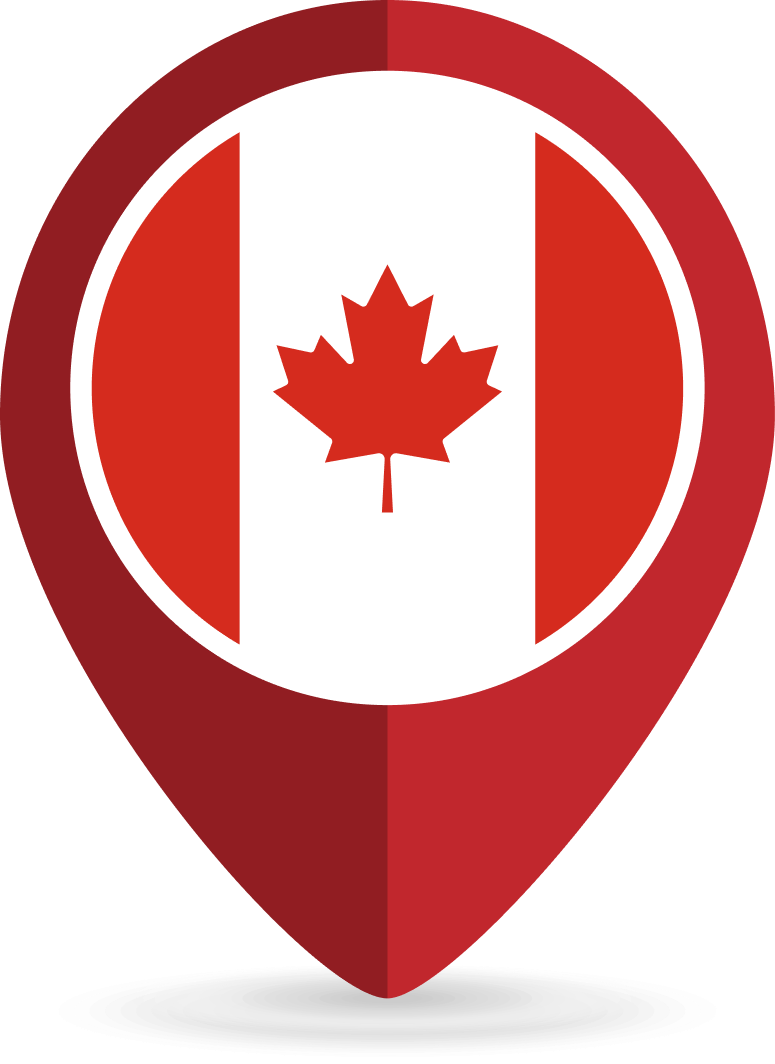Requirements to Study in Canada for international Students
Requirements to Study in Canada for Students
You need these documents to apply for a study permit:
- proof of acceptance
- proof of identity
- proof of financial support
You may also need
- a letter of explanation
- an attestation of issuance of your Quebec Acceptance Certificate (CAQ)
- a medical exam
- a custodian declaration (minors only), or
- other documents
Proof of Acceptance
To study in Canada as an international student, obtaining a letter of acceptance is a crucial step. Your designated learning institution (DLI) must send you an official letter confirming your acceptance into their program. It is imperative to include either the original or an electronic copy of this acceptance letter when submitting your study permit application.
In some cases, you may receive a conditional acceptance, which means you need to complete prerequisite courses before starting your main study program. These prerequisite courses could include language courses like English as a second language or French as a second language. Your study permit will be issued for the duration of these courses plus one additional year. After successfully gaining acceptance into your main program, you will need to apply for a new study permit to extend your stay as a student in Canada.
However, there are exceptions to this requirement. If you are a family member of someone who already has an approved study permit or work permit application in writing before your arrival in Canada, you do not need to provide a letter of acceptance for your study permit application.
Proof of identity
When applying for your study permit in Canada, it is essential to provide proof of identity for yourself and each accompanying family member. The following documents are necessary to meet the proof of identity requirements:
- Valid Passport or Travel Document:
- All applicants must have a valid passport or travel document. For online applicants, you should upload a copy of the information page of your passport during the online application process. If your application gets approved, you will need to send the original passport to the relevant authorities.
- Citizens of the United States:
- Citizens of the United States have certain options regarding identification documents. Lawful permanent residents of the United States must travel with a valid green card (or an equivalent official proof of status in the U.S.) and a valid passport from their country of nationality (or an equivalent document).
- Two Recent Passport-Size Photos:
- Each applicant must provide two recent passport-size photos. On the back of each photo, write the name and date of birth of the person to whom it belongs.
Proof of Financial Support
When applying for a study permit in Canada, it is essential to demonstrate that you have sufficient financial support to cover your expenses and those of any family members accompanying you during your stay in the country. There are various ways to prove your funds, and the following documents can be used for this purpose:
- Canadian Bank Account:
- If you have transferred money to Canada, providing proof of a Canadian bank account in your name can be an acceptable form of financial support.
- Guaranteed Investment Certificate (GIC):
- A GIC from a participating Canadian financial institution can serve as proof of financial capability during your stay.
- Student or Education Loan:
- Presenting proof of a student or education loan from a bank can demonstrate your ability to finance your studies and living expenses.
- Bank Statements:
- Your bank statements for the past four months can be used to show your financial stability and ability to support yourself.
- Bank Draft:
- A bank draft that can be converted to Canadian dollars can be considered as proof of funds.
- Tuition and Housing Fees Payment Proof:
- Providing evidence that you have paid your tuition and housing fees showcases your commitment to covering essential expenses.
- Letter of Financial Support:
- If someone else, such as a family member or educational institution, will be providing financial support, a formal letter from them explaining the arrangement can be submitted.
- Proof of Funding from Within Canada:
- If you have received a scholarship or are part of a Canadian-funded educational program, proof of the funding can be used to demonstrate financial capability.
| Persons coming to Canada | Amount of funds required per year (not including tuition) | Amount of funds required per month (not including tuition) |
|---|---|---|
| You (the student) | CAN$10,000 | CAN$833 |
| First family member | CAN$4,000 | CAN$333 |
| Every additional accompanying family member | CAN$3,000 | CAN$255 |
If you and 2 family members want to come to a province (other than Quebec) for a year, you will need
- living expenses: $10,000 (for the student)
- living expenses: $4,000 (for the first family member)
- living expenses: $3,000 (for the second family member) Total: $17,000
| People coming to Canada | Amount of funds required per year (not including tuition) | Amount of funds required per month (not including tuition) |
|---|---|---|
| 1 person under the age of 18 | CAN$6,569 | CAN$547 |
| 1 person aged 18 or over | CAN$13,134 | CAN$1,095 |
| 2 people aged 18 or over | CAN$19,264 | CAN$1,605 |
| 2 people aged 18 or over and 1 person under the age of 18 | CAN$21,579 | CAN$1,798 |
| 2 people aged 18 or over and 2 people under the age of 18 | CAN$23,290 | CAN$1,941 |
Letter of Explanation
This letter helps the visa officer to understand you and your goals. It explains
- why you want to study in Canada
- that you understand your responsibilities as a student
You should include this letter if you decide to apply for a study permit, even if you don’t have to get a study permit for your program.
Quebec Acceptance Certificate
If you plan to pursue your studies in Quebec for a period exceeding six months, it is mandatory to obtain an Attestation of Issuance of Quebec Acceptance Certificate (CAQ) from the Government of Quebec. This certificate is a crucial prerequisite for obtaining a study permit for Quebec. Your educational institution will guide you through the application process for the CAQ, ensuring a smooth and hassle-free experience.
Medical Exam
Under certain circumstances, a medical exam is required for individuals planning to come to Canada. If any of the following situations apply to you, you may need to undergo a medical examination:
- Extended Stay: If you intend to stay in Canada for more than six months, a medical exam might be necessary. The purpose of this examination is to ensure that you do not have any serious health conditions that could pose a risk to public health or become a burden on the Canadian healthcare system.
- Recent Travel: If you have recently spent time in certain countries that are known to have high incidences of communicable diseases, you may be required to undergo a medical examination before entering Canada. This is to prevent the potential spread of infectious diseases and protect the health of the Canadian population.
- Certain Jobs: If you plan to work in specific job sectors where public health and safety must be safeguarded, a medical examination might be mandatory. This requirement is essential to ensure that individuals working in these fields do not have any health conditions that could jeopardize the well-being of others.
Custodian Declaration (minor children)
When a minor child (under the age of 18) intends to study in Canada and requires a custodian during their stay, the Custodianship Declaration form (PDF, 1.02 MB) must be submitted along with the study permit application. The form consists of two pages, both of which need to be notarized (certified by a notary) before being included in the application.
Here’s how the Custodianship Declaration form process works:
- Notarization: Both pages of the Custodianship Declaration form must be notarized. This means that a certified notary public must verify the authenticity of the signatures on the form. Notarization ensures that the signatures of the custodian in Canada (first page) and the parents or legal guardians of the minor child in their home country (second page) are legitimate.
- Page 1 – Custodian in Canada: The custodian who will be responsible for the minor child during their stay in Canada must sign the first page of the form. The custodian assumes the role of the child’s legal guardian while they are in Canada and will be responsible for their well-being, care, and support.
- Page 2 – Parents or Legal Guardians: The second page of the form is to be signed by the parents or legal guardians of the minor child in their home country. By signing this page, they acknowledge and consent to the custodian’s role in Canada and grant them the authority to act on their behalf during the child’s stay.
Once both pages of the Custodianship Declaration form have been notarized and signed accordingly, the completed form must be included in the study permit application. This process ensures that all parties involved are aware of their responsibilities and that the minor child will have proper care and guardianship while studying in Canada.
Other Documents
When applying for a Canadian visa, in addition to the specific documents mentioned earlier, it is essential to check the instructions provided by the visa office in your country or region for any local requirements. These instructions may vary depending on your location and individual circumstances.
If you are not currently in your home country and are applying for a Canadian visa from a different country, you may need to prove your legal immigration status in that country. This could be a valid visa or residency permit allowing you to stay there legally.
Additionally, if the government that issued your passport or travel document requires you to have a re-entry permit before leaving the country, you must obtain one before applying for a Canadian visa.
Apart from the basic documentation, you might also be requested to provide additional supporting documents during the application process. If this is the case, the Canadian immigration authorities will contact you directly to request the specific documents they need. It is important to be proactive in collecting and preparing all necessary documents before they contact you, as this process may take several months, and certain documents may require more time to obtain.
When gathering your documents, always refer to the last email or communication you received from the Canadian immigration authorities to confirm the exact requirements for your application.
It’s crucial to note that you should not travel to another city or country solely to obtain supporting documents for your Canadian visa application. If there are valid reasons why you cannot provide the requested documents within the given timeframe, you can explain your situation, especially if it’s related to the COVID-19 pandemic. In such cases, the authorities may consider extending your submission deadline.
Overall, it is essential to follow the guidelines and instructions provided by the Canadian visa office and the Immigration, Refugees, and Citizenship Canada (IRCC) to ensure a smooth and successful visa application process. If you have any doubts or need further clarification, you can reach out to the Canadian visa office or consult with a qualified immigration expert for assistance.
Canada SIM Card - Your Communication Solution in Canada
Studying in Canada is an exciting journey for international students, offering excellent educational opportunities and exposure to a diverse cultural environment. To ensure a smooth transition and stay in Canada, it’s essential to be well-prepared, including having a reliable Canadian SIM card. CanadianSIM, a leading provider for international students, offers convenient SIM card plans to meet your communication needs throughout your academic experience.
Why Choose CanadianSIM for International Students?
- Budget-Friendly Plans with Generous Data: CanadianSIM understands the importance of staying connected while studying abroad. Their $40 plan includes a generous 25 GB data allowance, ensuring you can access the internet, connect with friends, and engage in online learning without worrying about data limitations.
- Unlimited Canada Wide Calls: Maintaining communication with loved ones and academic peers is crucial for international students. With CanadianSIM’s $40 plan, you get unlimited Canada-wide calls, making it easy to stay in touch with everyone across the country.
- Seamless Text Messaging (SMS) – Local & International: International students often need to exchange messages with friends and family back home. CanadianSIM’s plan includes unlimited local and international text messaging (SMS), allowing you to keep in touch with your support network effortlessly.
- No Set Up Fees: CanadianSIM values transparency and simplicity. There are no set-up fees when activating your SIM card, making it hassle-free to get started with your communication needs.
- Caller ID & Voicemail Services: Stay organized and informed with caller ID, ensuring you know who’s reaching out to you. Voicemail services help you never miss an essential message, keeping you connected and up-to-date.
Get Prepared – Choose CanadianSIM Before You Arrive:
Before you arrive in Canada, it’s essential to have your communication needs sorted. CanadianSIM provides the convenience of purchasing your SIM card before departure, ensuring you’re ready to stay connected as soon as you land.
Embrace this exciting opportunity to study in Canada and make the most of your academic journey with reliable communication from CanadianSIM. Stay connected, stay informed, and make the most of your international education experience in Canada.
Related Posts



















